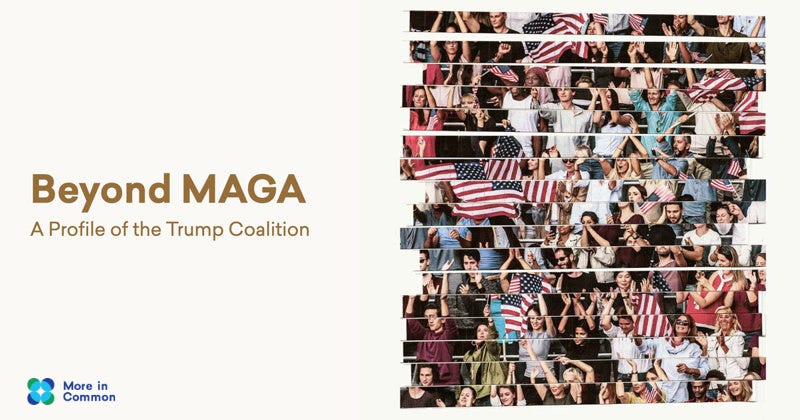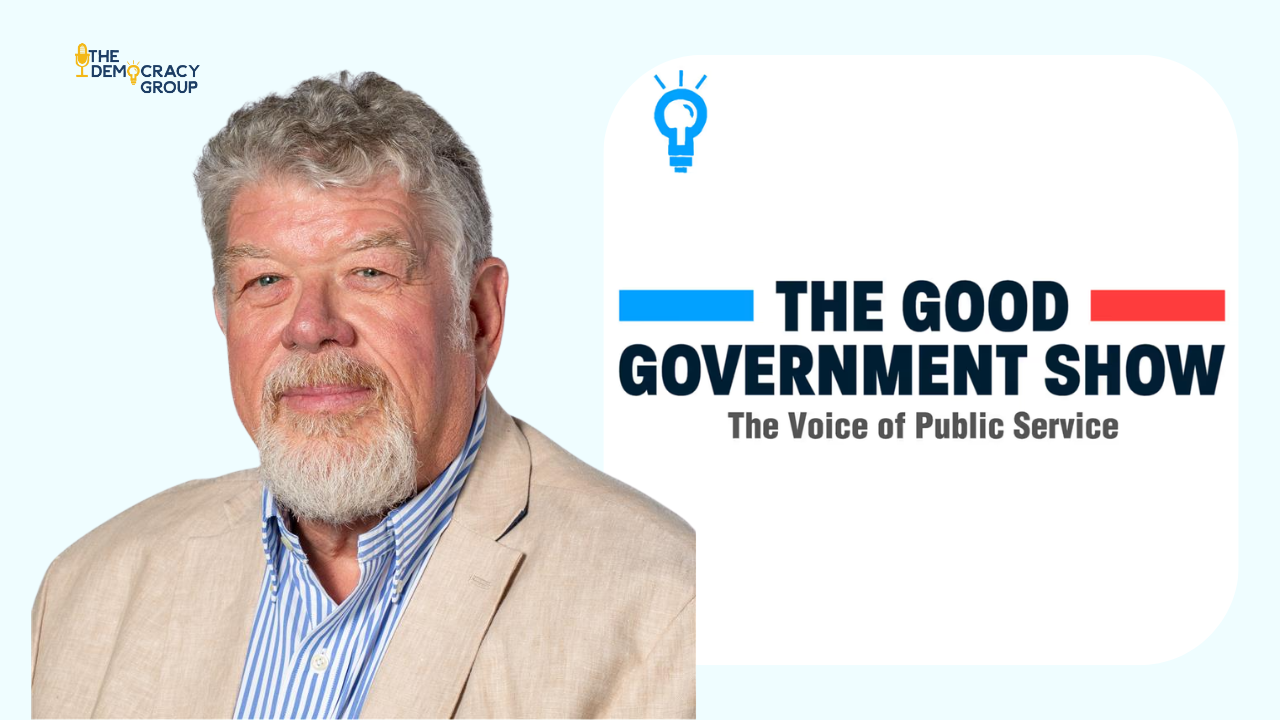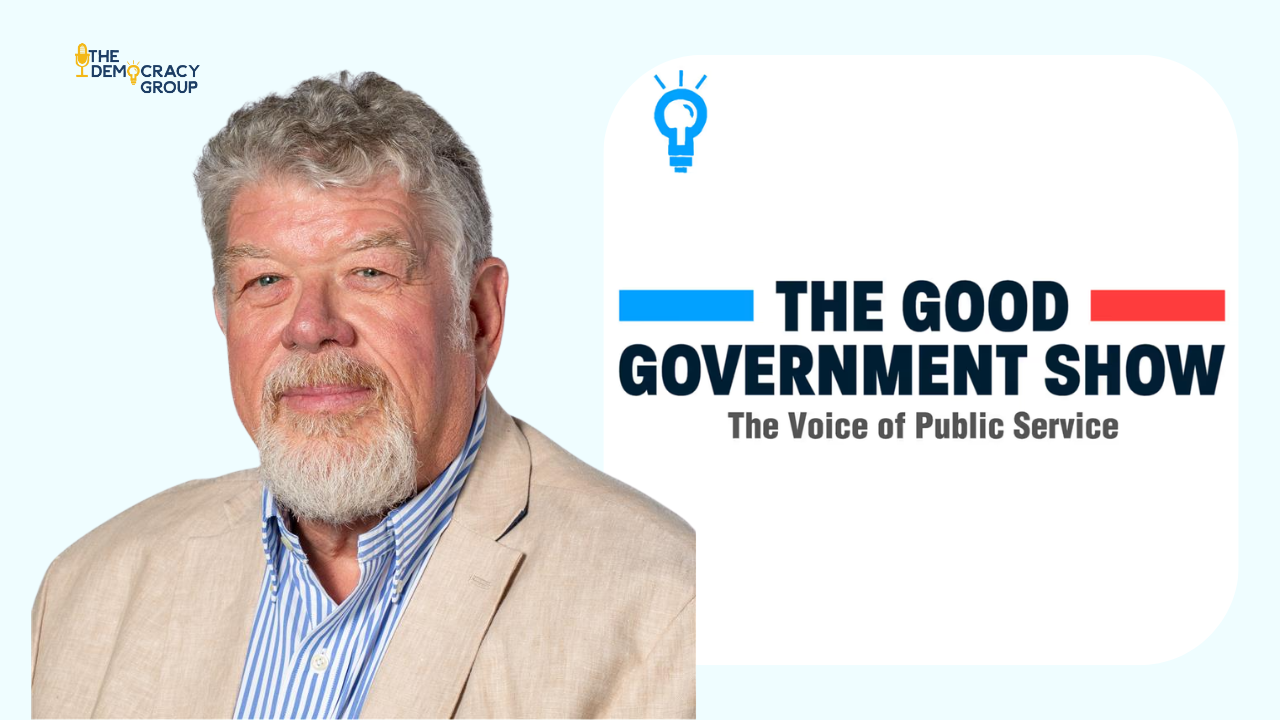
For the latest in our series on organizations that inspire us to take action to build a stronger democracy, Democracy Group community manager Jessie Nguyen caught up with The Round Table podcast hosts Heba Elkouraichi, Emmanuel Annan Jr., Emily Munoz and producer Erina Chowdhury. The Round Table, a part of Next Generation Politics, is a “by GenZ, for GenZ” podcast that provides a platform for conversation and engagement by challenging norms and representing all kinds of diversity, especially of perspective and ideas.
Q: What got you involved with The Round Table?
Emily: I’ve always loved history, politics and advocacy. So when I saw a post about being a podcast host after I participated in Next Generation Politics’ YVote and Democracy Camp during the summer, I thought it wasn’t just something I heard about anymore — it’s helping to cultivate my mindset as somebody who wants to work in the government one day. I really enjoyed getting to hear from people who work in different sectors and have different beliefs.
I think it's one of the best things I've ever done. I've had an amazing time here!
Erina: I’ve always been politically engaged within my community and my family, especially during the 2020 election when there was a lot of partisan politics. I felt disconnected from my generation because I hadn’t had political discussions with people my age — it was adults or families who had similar ideologies to me — so I wanted to expand my bubble and have the opportunity to talk with more people from different political spectrums… about topics that were always on my mind like critical race theory and criminal justice reform.
Q: What goal or objective are you working toward at The Round Table?
Heba: We’re here to understand different backgrounds and different experiences and the way people look at the world differently. I lived in a suburban city my entire life so I wanted to see different political beliefs, different ideologies and to immerse myself in something I hadn’t been in before.
Erina: Next Generation Politics is cross-partisan and we really want to emphasize that political discussion coming together, especially as young people, is extremely important. It’s a wonderful experience for our podcast hosts and every time I listen in on conversations, they bring in such diverse experiences and come from a variety of backgrounds.
What's different about The Round Table is that we're fully led by young people and I think that really sets us apart with the conversations we're having and how authentic the dialogue feels. It's because it's by the young people and the young people are coming up with the questions.
Q: What skills have Next Generation Politics and The Round Table equipped you with that are transferable outside of school?
Heba: I’ve been able to develop connections and networking abilities that I’d never have the opportunity to do so. I was able to establish an almost-mentor relationship with a person whom I would never have been able to meet without this podcast, and now he’s helping me with college applications and scholarships.
It's amazing because he's working and is successful in the field that I want to pursue and I think that's something invaluable to my future career.
Emmanuel: YVote and Next Generation Politics have given me skills to think critically and I’ve learned a lot just sitting in Civic Forums, where experts come in and educate us on issues like education, freedom of speech, and racial equity. It helped give me proper discourse skills as well as being able to see different perspectives but also, being able to sit in the room has provided me insight into how to present well and I think it’s one of the biggest skills I’ve learned passively.

Politics in Question: How can Americans bridge the urban-rural divide in their politics?
While youth organizations like The Round Table podcast are working to bridge the generational gap in politics, socioeconomic factors such as the urban-rural divide pose challenges and contribute to the polarizing state of American politics. In this episode, Jonathan Rodden — the author of "Why Cities Lose: The Deep Roots of the Urban-Rural Divide" examines reforms that can help Americans to tackle this prevalent issue.
Subscribe to receive a biweekly collection of the hottest podcast episodes from the network, upcoming special events, expert features, and news from your favorite shows.
Subscribe to our NewsletterThis is Jessie Nguyen, The Democracy Group's Community Manager. Here are some of my favorite podcasts this week, check them out!

This episode introduces how America might not be as polarized as we think it is as the media tend to focus on politically engaged individuals with a higher level of involvement, hence, "the other divide." Yanna Kurpnikov and John Barry Ryan, authors of The Other Divide: Polarization and Disengagement in American Politics, unpack how they came about this framework, the different levels of involvement and challenges for journalists as they report on the political world.

To continue our discussion on the media in the public eye from the last newsletter, I wanted to bring you this episode from How Do We Fix It? that takes a closer look at journalists' relationship with the American public. With guest Joy Mayer from Trusting News, the episode discusses bias, transparency, and constructive steps that the newsrooms can take to improve their reputation with a broad cross-section of Americans.

Dr. Francis S. Collins is a physician-geneticist noted for his landmark discoveries of disease genes. His research laboratory has discovered a number of important genes, notably genes for type 2 diabetes and those responsible for Huntingdon's disease. Dr. Collins was the longest-serving director of the National Institutes of Health, spanning 12 years and 3 presidencies.

Eric Liu is the CEO and co-founder of Citizen University which works to build a culture of powerful and responsible citizenship in the United States. Liu has authored numerous acclaimed books, including most recently "You’re More Powerful Than You Think: A Citizen’s Guide to Making Change Happen," and is a contributing writer at The Atlantic. Liu served under President Bill Clinton as the White House speechwriter and the President’s deputy domestic policy adviser, and on the board of the Corporation for National and Community Service under President Barack Obama.
Subscribe to receive a biweekly collection of the hottest podcast episodes from the network, upcoming special events, expert features, and news from your favorite shows.
Subscribe to our Newsletter
More in Common Research Manager Paul Oshinsk breaks down the report’s findings and shares insights into what motivated Trump voters
Read Post
We welcome a new show to The Democracy Group! 🎉
Read Post
Host Dave Martin talks about “good government” stories, why they’re absent from mainstream media and what the show has planned for 2026.
Read Post